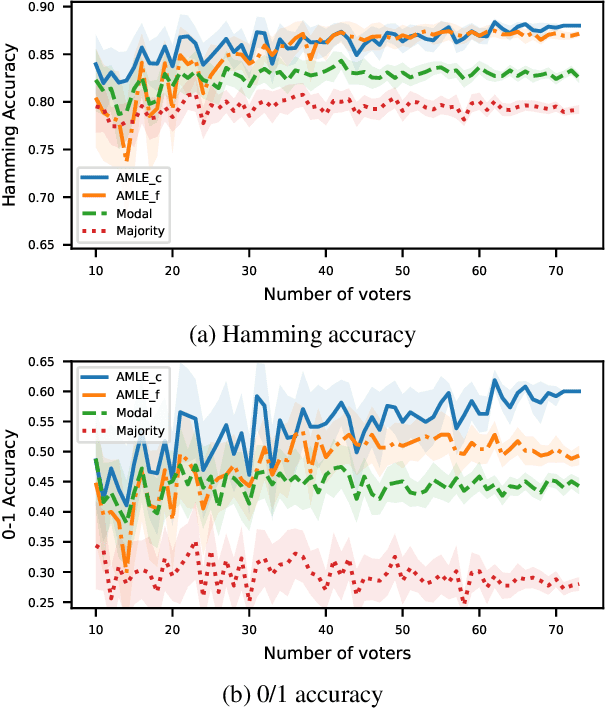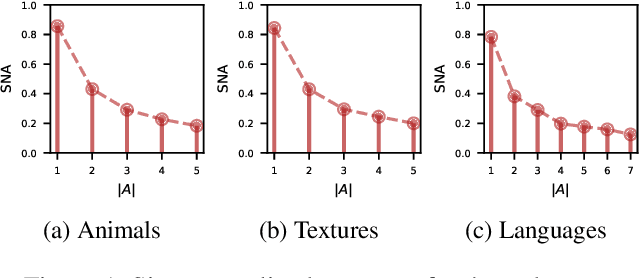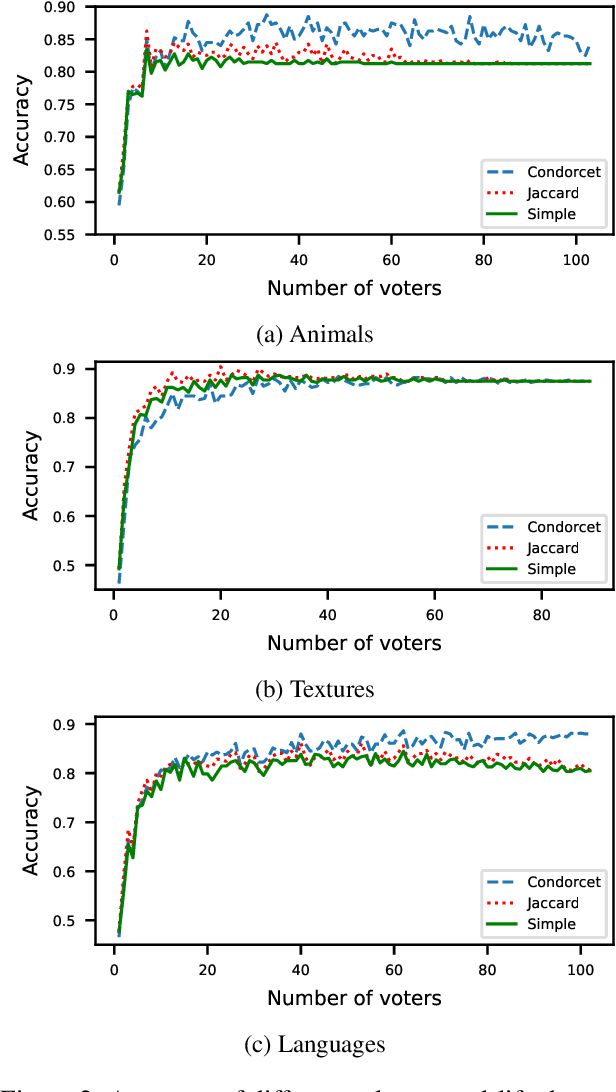Tahar Allouche
Multi-winner Approval Voting Goes Epistemic
Jan 17, 2022



Abstract:Epistemic voting interprets votes as noisy signals about a ground truth. We consider contexts where the truth consists of a set of objective winners, knowing a lower and upper bound on its cardinality. A prototypical problem for this setting is the aggre-gation of multi-label annotations with prior knowledge on the size of the ground truth. We posit noisemodels, for which we define rules that output an optimal set of winners. We report on experiments on multi-label annotations (which we collected).
Truth-tracking via Approval Voting: Size Matters
Dec 07, 2021

Abstract:Epistemic social choice aims at unveiling a hidden ground truth given votes, which are interpreted as noisy signals about it. We consider here a simple setting where votes consist of approval ballots: each voter approves a set of alternatives which they believe can possibly be the ground truth. Based on the intuitive idea that more reliable votes contain fewer alternatives, we define several noise models that are approval voting variants of the Mallows model. The likelihood-maximizing alternative is then characterized as the winner of a weighted approval rule, where the weight of a ballot decreases with its cardinality. We have conducted an experiment on three image annotation datasets; they conclude that rules based on our noise model outperform standard approval voting; the best performance is obtained by a variant of the Condorcet noise model.
 Add to Chrome
Add to Chrome Add to Firefox
Add to Firefox Add to Edge
Add to Edge